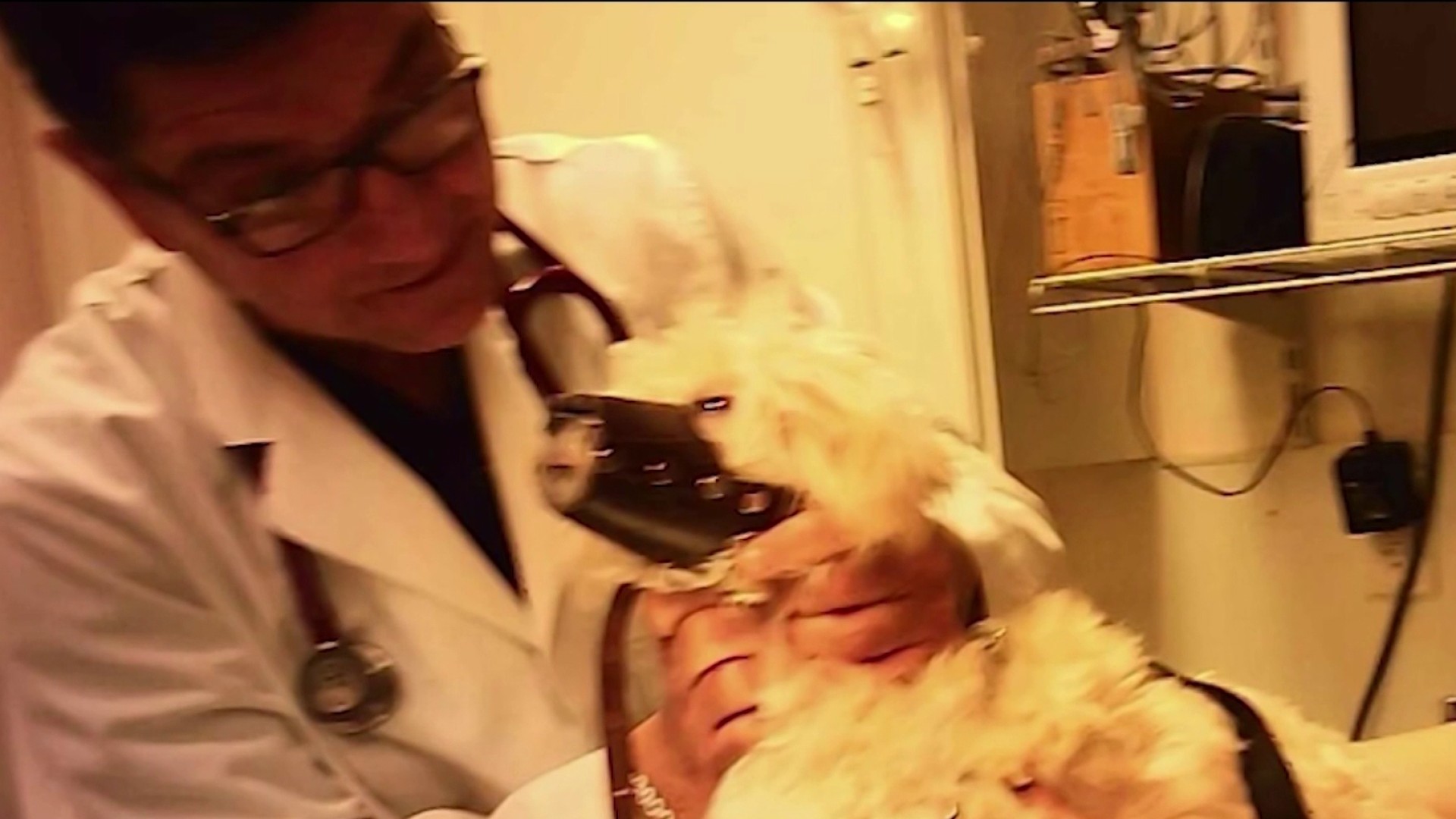
Animal rights activists advocate for bans on traveling exotic animals shows. Greg Cergol reports.
A battle over using exotic animals to make money is heating up on Long Island — and very nearly turned physical outside what is a now-closed petting zoo.
Two men waging a legal fight over exotic animals today went nose to nose on Monday, as animal rights activist John Di Leonardo confronted Larry Wallach, whowas operated a business where he traveled around allowing people to pet and hold sloths.
"You lie to people," Wallach said to Di Leonardo, while ordering him to get off the property. The pair then got in each others' faces and exchanged small shoves before separating.
Get Tri-state area news delivered to your inbox. Sign up for NBC New York's News Headlines newsletter.
Moments before, Di Leonardo had stood with Suffolk County legislators while proposing a ban on the use of exotic animals in traveling performances.
"We need to stop sloths from being brought to children’s birthday parties," Di Leonardo said.
The proposed law was in-part the result of new complaints about Wallach taking the slow-moving tree dwellers to people’s homes. One activist called it "modern slavery, animal exploitation."
But Wallach has refused to acknowledge any wrongdoing.
"What am I doing that’s wrong? I have an animal. I do an educational show," he said.
Wallach had begun traveling with his sloths after a Suffolk County judge closed his Islip storefront temporarily in September. The town claimed the business, which allowing people to hold and feed the sloths, was operating illegally. Some in the town also referred to him as a wannabe "Sloth King" (a reference to the Netflix documentary "Tiger King") and said some residents have accused him of mistreating the sloths.
Wallach took a stand against his critics on Monday.
This is a violent person who abuses animals," Di Leonardo said, to which Wallach shot back, "Tell me how I abuse an animal? Tell me."
The proposed ban on traveling exotic animal shows would be the first in New York but would not impact zoos, aquariums or educational programs. Wallach is vowing to challenge it if Suffolk legislators approve it.



